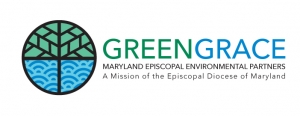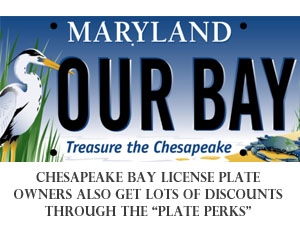Has your group or organization been considering a “greening” project, but wondered where the cash will come from?
Consider attending the how-to-apply-for-grants summer workshops offered by Baltimore City’s Department of Public Works (DPW) and the Chesapeake Bay Trust. The workshops are designed to bring you up to speed on how to write a competitive design and environmental and water quality grant. All those $20 Chesapeake bay license plates and stormwater fees are helping to make Baltimore cleaner and greener. Maybe your group will be part of the solution?
Created in 1985 by the Maryland General Assembly, the Chesapeake Bay Trust is a nonprofit that has grown into an effective hub that distributes and manages environmental grants to groups and individuals. Funded by the $20 Chesapeake Bay license plate fee, grant-supported activities and projects must improve local communities and dial up Maryland’s environmental stewardship.
Three years ago, Baltimore’s Department of Public Works joined forces with the Chesapeake Bay Trust and began investing Stormwater Utility Fund dollars — your stormwater fees — to focus on Baltimore City greening projects.
“Chesapeake Bay Trust is the best at finding and approving competitive and actionable grant projects that can help the city,” said Mark Cameron, section chief of watershed planning and partnerships at DPW. “The Trust was interested in finding more diversity in grant participants and Baltimore is looking to increase projects that improve water quality. It’s an excellent partnership.”
Chesapeake Bay Trust offers a wide variety of grants, but two are open with deadlines fast approaching. The two types of grants work together to aid groups to complete restoration or education initiatives. Funding a project’s design phase falls under the Watershed Assistance Grant Program. The Outreach and Restoration Grant Program funds the capital expenses associated with well-planned projects. The grants can work together in phases: As an example, earn a design grant to plan out a stormwater project, then earn a funding grant to build out the designed project.
“Our team offers extensive grant writing support and help so that potential grantees can write strong and competitive grants,” said Kacey Wetzel, Chesapeake Bay Trust’s program director of outreach and education. According to Wetzel, the Watershed Assistance Grant kitty is $450,000 this year and the grant application deadline is Sept. 22. The Outreach and Restoration Grant Program has $1.5 million available in funds, and is open for applications until Sept. 11.
Now, the tough part. It’s been said that writing successful grants is one part art and one part science. In an effort to help potential newbie grantees get up to speed, DPW and the Chesapeake Bay Trust will host four workshops together this summer to explain exactly how to write a potentially winnable grant.
July 11, 6-8 p.m. at Parks & People, located at 2100 Liberty Heights Avenue.
July 13, 5:30-7 p.m. at Second Chance, located at 1700 Ridgely Street.
July 20, 5:30-7:30 p.m. at Central Baltimore Partnership, located at 25 E. 20th Street.
Aug. 2, 6-8 p.m. at Humanim, located at 1701 N. Gay Street.
“All grant application will be reviewed by an outside group of experts,” said Wetzel. “Each grant will be scored and ranked so that Chesapeake Bay Trust dollars go to projects that will meet measurable goals to improve our state.”
“We are looking for a diverse set of projects and we’re open to larger projects that can make serious dents in reducing pollution outputs,” added Cameron. “Stormwater projects, green workforce development, pet waste removal campaigns, litter reduction campaigns and urban tree canopy expansion are the types of projects we’re looking to fund.”
Good luck!



